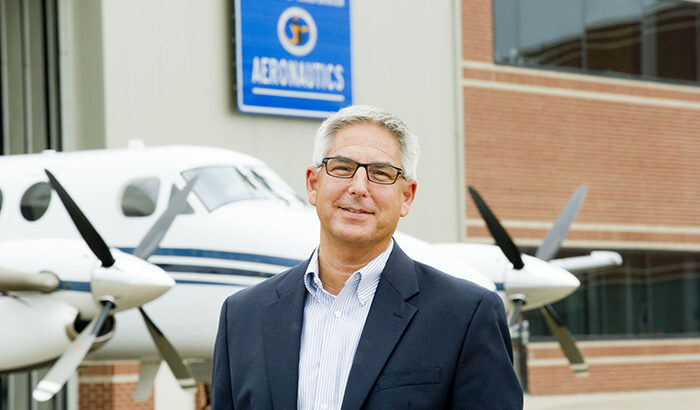After 13 years of service as the Executive Administrator for the Michigan Department of Transportation, Office of Aeronautics, Mike Trout is retiring effective July 5, 2024. He began his state service in 2011 after serving in various roles in the aviation industry.
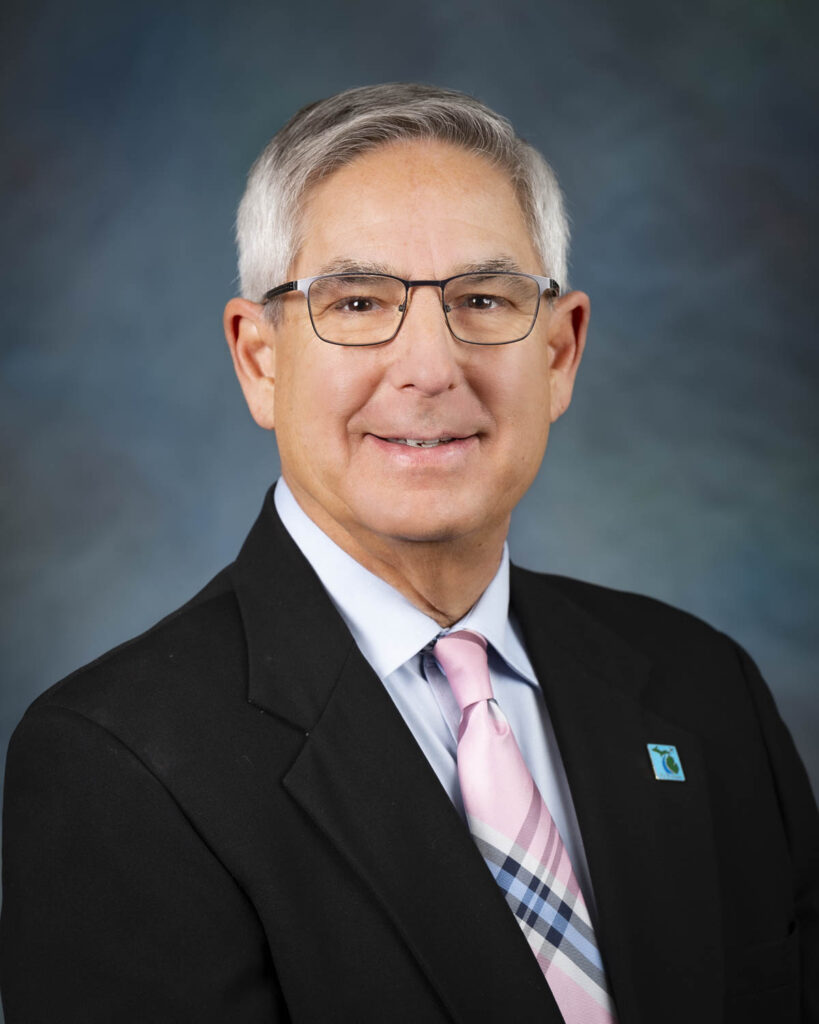
Mike was initially attracted to aviation, because the industry has always been about innovation and that, “makes it cool and exciting.” He was attracted to the many facets of the industry and aspired to be an airport manager during his early career. Mike told the State Aviation Journal that the airport managers in Michigan had a significant influence on him. “Folks like Jim Rice, Jim Kosloski, Dave VanderVeen, Mike Lynn, Kenn Potts and many others were always willing to share their knowledge and experiences freely and that was awesome.”
Michigan has a strong airport association and according to Mike, they have worked closely with the state aviation agency to host conferences and training across the state. “These are great opportunities to build a professional network and I was attracted to how all the various airports, consultants, federal, state, and local agencies, airlines, and businesses work together for the common goal of making flying safer for everyone and benefitting the communities they serve.”
Mike has had an interest in aviation for most of his life. “My Dad worked for the FAA during my childhood, and I think that had a big influence. I recall he took my cub scout troop on a tour of the MSP tower when I was in second or third grade and that may have sparked something early on,” said Mike.
His first foray into aviation was in the early 80’s working at an FBO in Lansing and during that time he took ground school through a local community college. After going back to get his master’s degree he worked for the Southeast Michigan Council of Governments as an aviation planner working on the Regional Aviation System Plan for the metro Detroit region. “I did that for about three years until I was hired to be the Deputy Director at City Airport (now Coleman A. Young) in downtown Detroit.”
When asked if he ever thought that one day he would lead a state aviation agency, Mike said, “I’m sure most would say no but interestingly I remember my dad asking me that very question. It could have planted a seed, who knows but as an ADO Manager he had interacted with the state aviation agency for many years. In fact, a former director (Bill Gehman) once worked for him. My parents always encouraged me in whatever endeavor I pursued, and I remember how proud they were when I finally became an Accredited Airport Executive A.A.E. I think my dad also helped remove some of the mystique about the profession which made me realize I could do this job.”
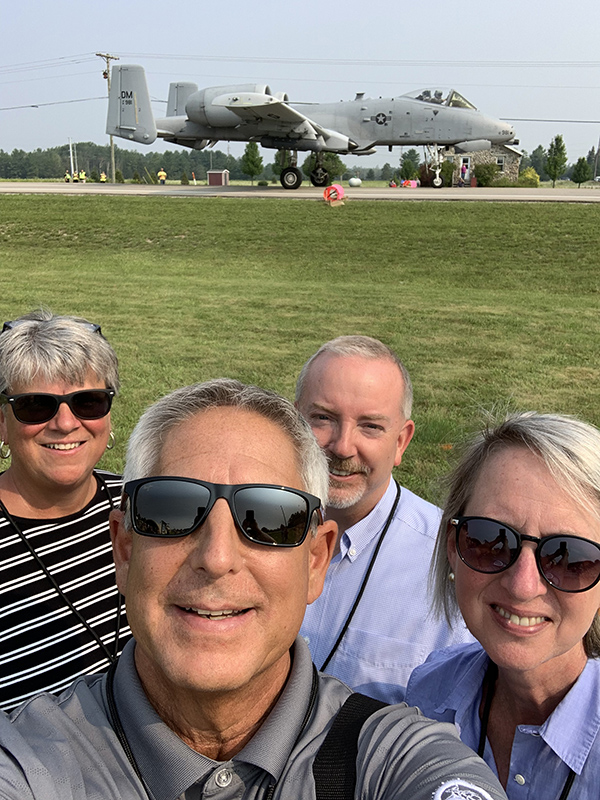
There have been many highlights for Mike’s career with MDOT, first and foremost, the people he’s had the opportunity to meet and work with. “Being able to attend some awesome events like operation Northern Strike and witness the military landing a jet on a state highway.” Also, serving as Director of the Aeronautics Commission has been extremely rewarding for Mike. “I’ve had some great Commissioner’s over the years that have worked together to support several major initiatives including our system plan update in 2017, studies of essential air service and our UAS efforts.”
Additional highlights Mike listed included being recognized by the National Association of State Aviation Officials (NASAO), for their AFFF testing cart program; Chairing the Governor’s UAS Task Force and the implementation of new rules because of that effort; Managing through Covid and how incredibly well the staff transitioned to remote work and delivered all the new airport development programs over the last few years since; Serving on NASAO committees and helping craft the new block grant MOU, and the growth and success of Michigan airports large and small.
While at MDOT, some things did surprise Mike. “I knew things took time in state government but the pace of industry versus the pace of state and federal agencies, quite often don’t align. Also, the civil service system was and still is an antiquated system. The other surprise is how much influence one can truly have if they get involved in things like committees and groups.”
As Mike prepares for the next chapter in his life, he reflected on what might be the biggest steps for whoever follows in his footsteps. “I think it would be finding and keeping good staff. While I know my predecessor will blaze their own trail, there are still many things that can be challenging going forward. I think working with FAA has and will continue to be a challenge due to changing people and policies in both our agencies. I frankly think environmental issues are a huge challenge particularly when you have inconsistent, or no guidance from the responsible federal agencies.” Mike noted that PFAS is the prime example where the federal government mandates something and then is slow to act when it comes to liability issues. “This in my opinion has allowed airports to become a target for overreach by state officials.”
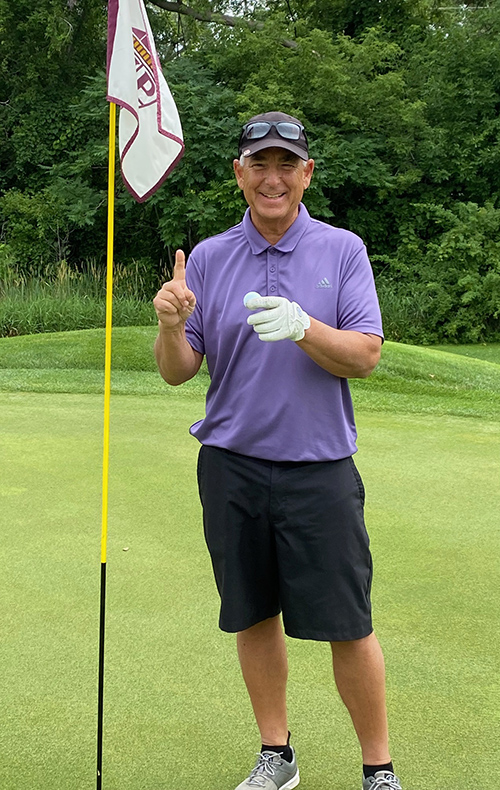
Reflecting on his time working with NASAO, Mike said he has had the opportunity to meet and know some outstanding people in this industry and that includes Henry O, who introduced him to NASAO. “The organization has had some challenges over the last 13 years, but it is on a steady course now. Greg [Pecoraro] and his team do an outstanding job serving state agencies in a highly effective manner.” Mike said he appreciates how NASAO has helped him stay engaged in the issues that affect aviation which has allowed him to be better prepared when addressing issues impacting Michigan.
Mike is quick to acknowledge the importance of networking with his fellow state aviation directors and with the industry. “I have served on the Legislative and Block Grant committees for NASAO since nearly the beginning and that has been extremely rewarding,” says Mike. “The other directors on those groups were always very easy to work with and even when I was new, they made me feel like my opinion mattered and were fantastic role models for me. I think until we get a chance to see and hear how other states function, we can become frustrated at times.” Mike shared that he was relieved in many cases to know that he was not alone in the challenges they faced in Michigan and that the other directors were open to sharing solutions to those challenges.
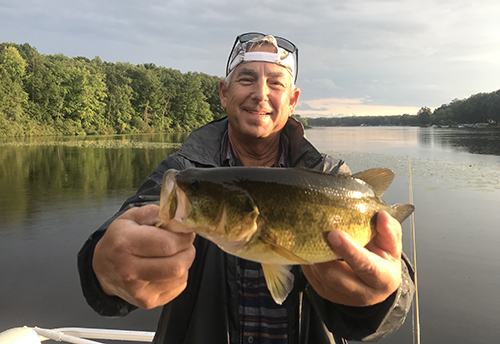
Thinking about where he goes from here, Mike says he has many interests and will explore opportunities that come his way. “I’m not riding off into the sunset. I intend to stay as active as possible.” Mike shared that he is an avid golfer and will likely incorporate some travel into being able to do more of that. Will he seek to continue to work in the industry? “If I can have a positive influence and make a difference, then it will appeal to me. Being able to pick what I work on and who I work with sounds pretty good!”
